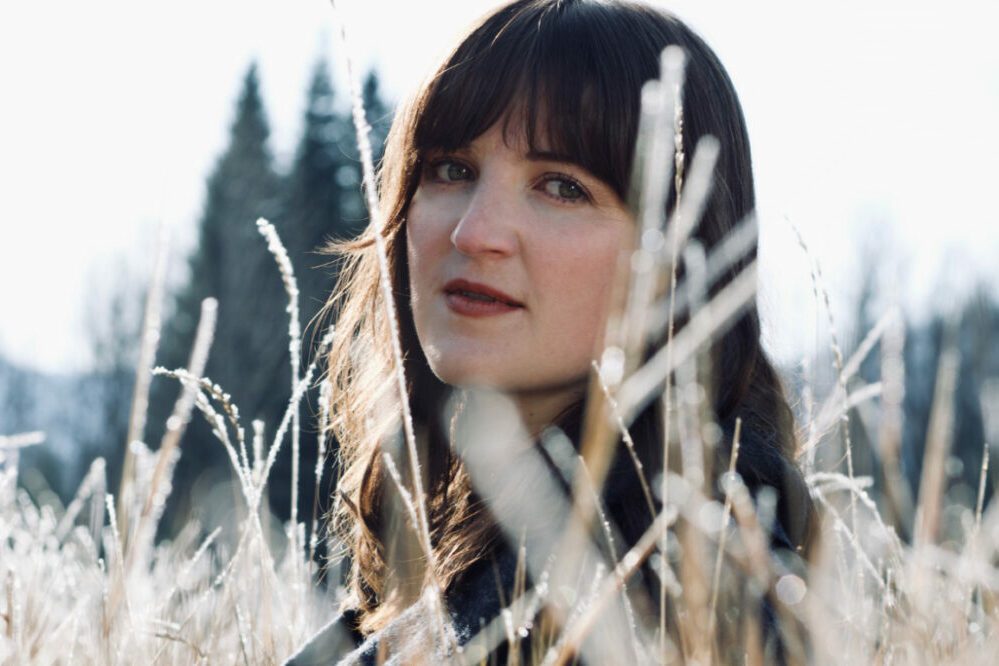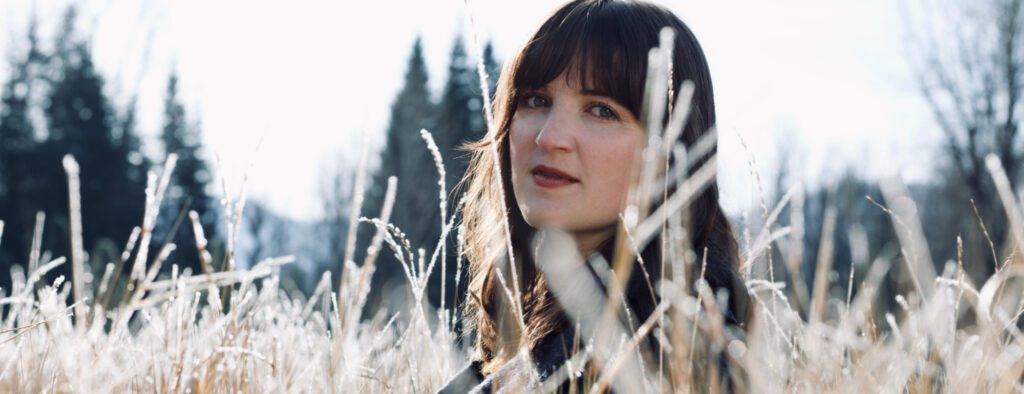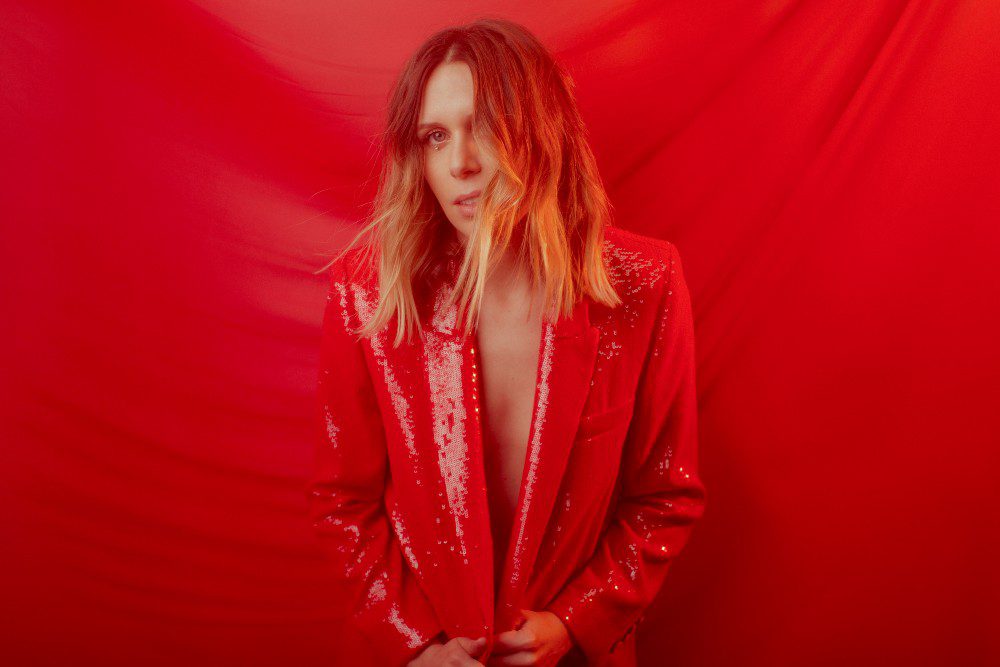

When asked why she makes music, Pacific Northwest songwriter Beth Whitney begins a story about a transient woman she met in Modesto with a ball of tangled fishing line.
“She sat next to me and she had a backpack and she took it off. She reached into her backpack and took out this big, basketball-size collection of tangled fishing line, and she started, with hands that were shaking a little bit, to unravel it and straighten it out,” says Whitney. “Finally, after 20 minutes I was like, ‘Do you want me to help you with your fishing line?’ And she said, ‘No, this is just something I have to do with my hands.’”
For Whitney, making music is the same way. The process of creating songs is a bit of an obsession, born from her desire to untangle the chaos of her own life into something more intelligible and beautiful to share. And Whitney’s newest album, Into The Ground, which drops May 28th on Tone Tree Records, does just that.
With her sense-making lyrics and familiar melodies, Whitney powerfully clarifies the meanings in her own nature-soaked life and provides listeners a way through their own internal chaos. There’s no better example of the grounding essence of Whitney’s songwriting style than her latest single “Moonlight” and its accompanying behind-the-scenes studio video, which Audiofemme premieres today.
It wasn’t long ago that Whitney wouldn’t have identified as musical. Growing up in the small rural town of Snohomish, Washington, a town she says is “all about school sports,” softball was the lens through which she looked at life for many years. She was a pitcher until she broke the index finger on her right hand; serendipitously, it was around this time that she was approached by a friend from church, who was holding a guitar. He simply asked her, “Could you use this?”
“I was like, ‘Yeah, I think I can,’ even though I didn’t play music or anything at the time,” remembers Whitney. From there, she started learning to fingerpick—which was all she could do with her broken finger splinted—and even wrote a song on a whim for her sophomore English class.
“I wrote this song and I played it for the class which was kind of nerve-wracking and I was just like, well, maybe it’ll get me a C,” she says. “But after I finished the song they all jumped up and gave me a standing ovation and I was like, what in the world? It made me think—this connects. I was like, ‘here I am.'”
In that way, music and songwriting were quite literally gifts Whitney was given and learned to use, and so she rarely refers to her music as hers. It’s about all of us. “Music has helped me hold this life itself with more open hands,” she says. “I think we as human beings are unbelievably more complex than we can measure, and also much more simple. We all know life is loaded with the brutal and the beautiful all intertwined [and] for me the search for poetry in there keeps me tethered.”
Listeners will hear the organic way Whitney creates, and how her songs are both personally and universally relevant, on “Moonlight.” The song begins with the peddling of two notes on guitar, and a gently ebbing vocal melody. Its major harmony coupled with Whitney’s poetic lyrics are both vaguely familiar and uniquely her own; Whitney has also intentionally inserted instrumental space, led by cellist Natalie Mai Hall, in order to activate her listener’s own musings within the framework of the song.
“The verses are so short and so straight. I definitely poured into them, but even when writing it, I thought, ‘Let’s just have this big instrumental section and we’ll come back in.’ The whole idea [was] to have this string section where the listener is talking with… and contemplating the moon,” Whitney explains.
As a result, “Moonlight” is one of the most grounding songs to listen to on Into The Ground, which is saying a lot, because the entire album has a clear, present, in-the-moment feel about it. And yet, “Moonlight” almost didn’t happen. It was actually not the one she had planned to record that day at Tacoma’s Mothership Studio – she was debating between three other songs, but found herself writing this one in the wee hours before the studio session instead.
“The song is somewhat inspired by my son. He looked up at the sky and he’s like, ‘Moon come down from there and play with me,’ and it was this sweet interactive thing he had with the moon and then that planted something in me,” says Whitney. “Years later I wrote this song [about] a profound loneliness that I thought was just mine. The older I get the more I realize how lonely a lot of people are in this existential way. People surrounded by others, people loved, gregarious and outgoing, and always surrounded by other people.”
While of course, loneliness is always inextricably connected to feelings of sadness and isolation, Whitney’s observance of the moon’s loneliness also welcomes the light side of alone-ness; the strength and presence of mind that being alone can afford. After all, this is a two-sided coin that Whitney herself flips everyday.
In fact, Whitney lives with her husband, Aaron Fishburn (who plays bass on the album), and their two kids, deep in the woods near the quaint mountain town of Leavenworth, Washington in a secluded rustic cabin Whitney’s grandparents built in the seventies, complete with wood-burning stove, a composting toilet and unreliable cell service and WiFi. There, they focus on immersing themselves and their kids in the natural world—an introspective, quiet way of life that unavoidably permeates “Moonlight,” and the whole of Into The Ground.
“You walk outside and the songs sort of write themselves,” she says. “You look at the moon and you’re like, how lonely is that, but how majestic is it, and how strong is it anyway, and it’s just getting its light from the sun and reflecting it back to us and it’s fine, it’s not jealous of the sun or something. You go out and the songs kind of write themselves. It feels like cheating.”
The accompanying video for “Moonlight,” created by Whitney’s friend Michael Krantz, who took footage of Whitney and her band while they recorded the song in the studio, often zooms in on Whitney’s profile, flanked by sunlight, then switches to her nodding along with the instrumental section against a dark, amber-lit backdrop. In that way, it also plays on her contemplation of the dark and the light in her own life, of the moon, and of loneliness, all the while highlighting the mystical experience Whitney had writing and recording of the album.
“The studio experience for this album was so incredible and life-giving and magical,” says Whitney. “Everything came in for that week and just fit beautifully.”
Follow Beth Whitney on Facebook for ongoing updates.


